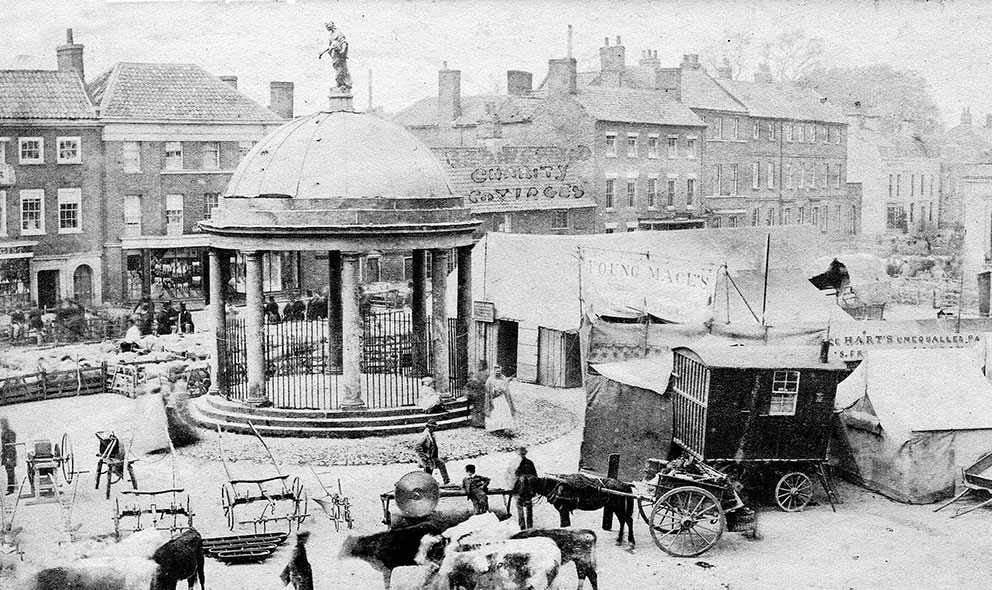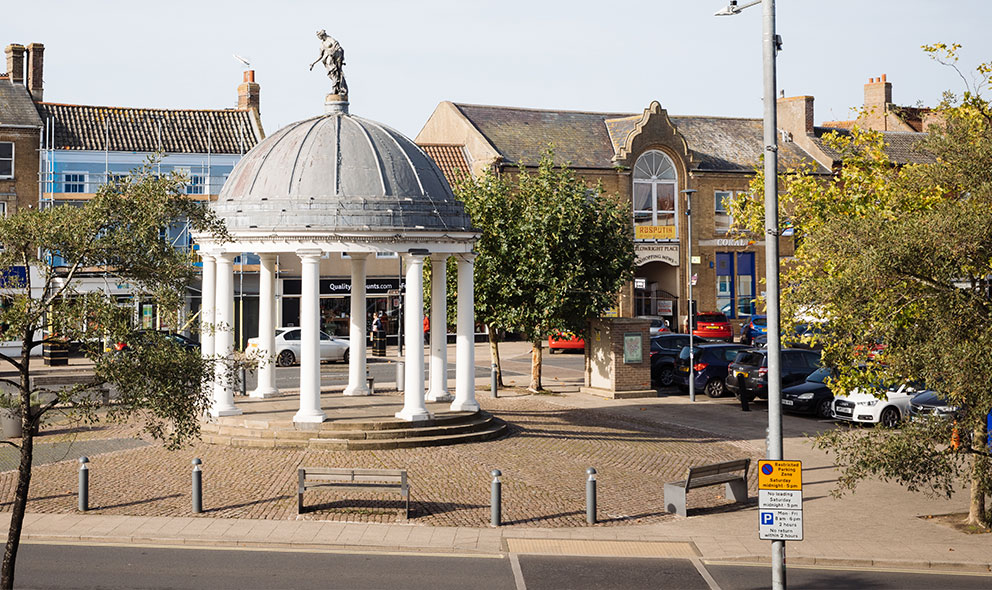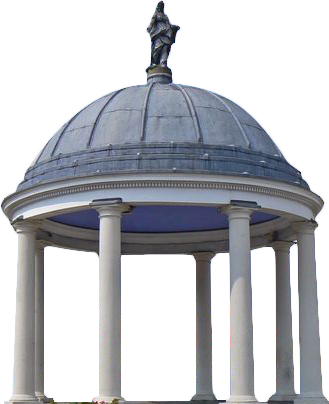Oakleigh House
16 Market Place
HOUSE. Early C17 with a mid C18
façade. Boundary wall. Early C17,
altered c1740. Random flint and
brick. Grade II listed.
The Smith family at Oakleigh House Swaffham, 1905
Back row; Donald (d.Flanders 1916), Clifford (d.Flanders 1918), Richard, Fernley
Seated; Audrey, Walter, Eleanor, Dorothy, Front row; Raymond (d.India 1919), Kathleen, Jessie, Ronald.
Oakleigh House was built as a farmhouse in the late-C16 or early- C17, reputedly on the site of a dwelling occupied by John Chapman, ‘The Pedlar of Swaffham’.
A carved oak door-head inscribed with the date 1658 and the initials JC (John Chapman) and EC (Edward Chapman) suggests that rebuilding may have been undertaken by a descendant.
The 1845 map indicates that it was owned by Rev. B.Edwards and occupied by Rev. Henry Dugmore, who by 1851 was installed as Rector at Beachamwell and living at the Hall there.
Between 1861 and 1902, when he died, it was owned by Jacob Finch, a farmer and merchant of coal, corn and manure. After his death it was leased to Walter Smith, farmer and butcher, who at some time farmed at Little Thornes and later bought Edward’s Farm.
They were relatives of Richard Smith, butchers in town. Walter later bought the house and lived there until his death in 1931. Three of his sons were killed in World War 1 and his daughter Dorothy, a well-reputed nurse and matron who began her nursing career in Swaffham Cottage Hospital, eventually became chairman of the General Nursing Council.
The house was requisitioned by the War Office in 1939 for use as an Officer’s Mess. In 1946 the decision was taken “to zone Oakleigh to allow the expansion of the Grammar School.” (Lynn Advertiser 09/01/1946) but no action was taken.
In 1982 it reverted to a private dwelling and is now holiday accommodation.


Popular locations on the West Side
Do you live here, did you live here and do you know of any interesting, historical facts you’d like to share with us.
We’d love to hear from you!
